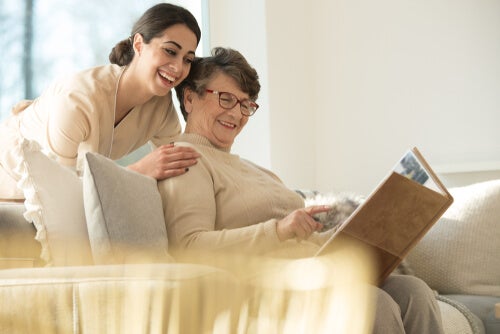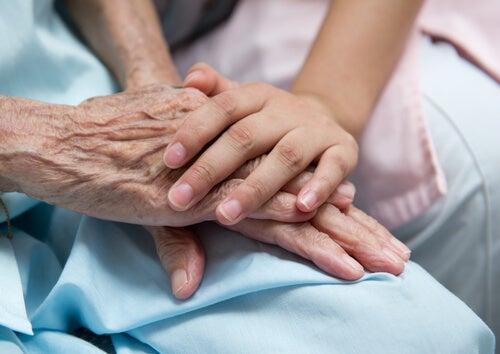Caregiving for Dependent People

Caregiving for dependent people can be a major challenge, on multiple levels, from society, to family, to you as an individual. Today, we’re going to focus on these people who help take care of the people most in need of it.
What exactly does it mean to “care for someone”? What kinds of caregivers are there?
There’s an important distinction to start with: formal and informal caregiving. A formal caregiver is someone with a paid position and experience in sociosanitary care and nursing. Informal caregivers are usually a person’s family members, friends, or in some cases neighbors.
Psychologist Rogero defines informal caregiving as “care and attention provided primarily by family and friends, and anyone else who may volunteer their time to help someone with a high degree of dependence or disability”.
According to the World Health Organization (1999), long-term care tends to be something done by informal caregivers (family, friends, and neighbors), professional caregivers, or both. The goal is always for the person to have the best quality of life by treating them as an individual and maintaining their autonomy and dignity.

Why is caregiving for dependent people so important?
Caregivers help them do daily activities
When you think of a caregiver, this is probably one of the first things that comes to mind. Caregiving for dependent people is often about helping them do basic tasks such as eating, going to the bathroom, bathing, and getting dressed.
Thus, many caretakers make personalized care and attention plans based on a specific person’s needs. The degree of their dependence, and other personal circumstances, may change the nature of the caregiver’s work.
They create an atmosphere of trust
Trust is the sense of security you have in another person, especially about how they’ll act in certain situations. It means being confident about what they’ll do. Thus, a dependent person feeling that they trust the caregiver will give them a sense of peace. That’s a key part of giving them the best care possible to help their family.
A good caretaker creates a sense of trust and safety, both for the person receiving the care, and for that person’s family (or the rest of the family, in the case of informal caregivers). They should be able to think things such as “My father or mother is in good hands” or “If something goes wrong, they’ll notice right away and do something”.
“Every place where we feel safety is a treasure.”
-Jan Jansen-
They provide support and affection
A caregiver provides company and emotional support to the person they care for. Now that work takes up so much of our time, having someone around to care for them can keep dependent people from feeling alone while their loved ones are out. In many cases, caregiving means providing company to dependent people, when their family can’t.
“Trust, professionalism, affection, empathy, and a desire to provide care are key parts of being a good caregiver.”
They provide autonomy
Although we’re talking about dependent people, caregiving can still do a lot in terms of providing them a sense of autonomy by helping them do daily activities.
A caregiver will encourage and motivate them to do the things they’re capable of. Of course, they’ll also understand that it can take a lot of effort for that person to be able to.

They help them stay connected to the outside world
Depending on the degree of dependence, a caregiver can help people maintain their relationships with people outside their family. This is important because it helps to keep them from feeling lonely.
Thanks to certain new technology, caregivers can keep them active in their area, help them take part in certain activities, and interact with their family, friends, or neighbors.
They improve their quality of life
Last but not least, we want to go back to how caregiving for dependent people can help maintain their dignity and sense of self by giving them autonomy. Caregivers are doing a necessary job day-in-day-out but our society doesn’t always recognize the important work they’re doing.
That’s why we wanted to dedicate this article to how important caregiving is. It doesn’t matter whether you do it as a job or as a family member. Caregivers become the pillars of support for people who need their help. They improve the quality of life of everyone close to their patients.
All cited sources were thoroughly reviewed by our team to ensure their quality, reliability, currency, and validity. The bibliography of this article was considered reliable and of academic or scientific accuracy.
- Murphy, E. (2000). Jóvenes y mayores: promoviendo una Actitud Positiva hacia el Envejecimiento y las Personas Mayores. Dublin. Consejo Nacional de Envejecimiento y Personas Mayores.
- Neugarten, B.L., Havighurst, R.J. y Tobin, s.S. (1961). Medición de una vida satisfactoria. Periódico de Gerontología, 16: 134-43.
This text is provided for informational purposes only and does not replace consultation with a professional. If in doubt, consult your specialist.








